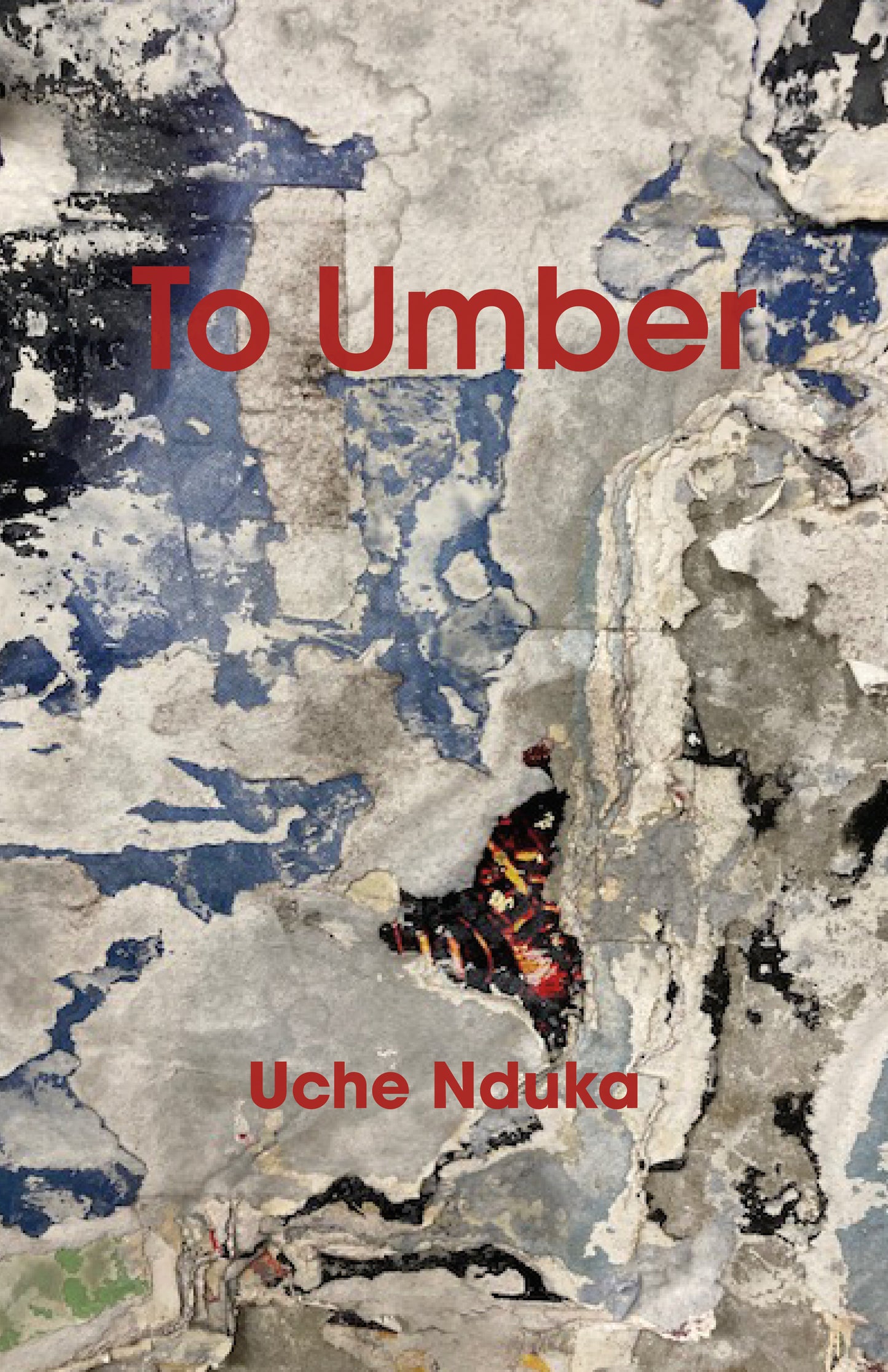Uche Nduka: To Umber
Uche Nduka: To Umber
Couldn't load pickup availability
ISBN: 979-8-9988921-6-5
Paperback. 164 pages.
Dimensions: 5.5" X 8.5"
The act of writing is an invitation to inquiry, argument, communion. Poetry is woven into the very fabric of the sensuous, the emotional, the political. My work leans into wonder but goes beyond just beauty. I let the poem dance in the light and shadow of all kinds of truth and experience. For me, the keyword is justice. The poems in To Umber combat stoic indifference and silence. I believe that the work of a cosmic lover is never over. In me the poetry of revolt has found its writer.
-Uche Nduka
To read To Umber is to join Uche Nduka in poeming around a metaphysical loam and sky, as he savors, worries, remixes and deftly transforms bits of noticing into gardens of expansive spells. These choruses, tercets, the occasional quatrain and chant become a dadaist tea leaf toss—meditations on questions, symbolism, or a zeitgeist of cultural patterns beckoning to be interpreted. A Nollywood filmmaking nod dialogues with mentions of human rights campaigners as well as artists who broke convention in various ways as they championed the liberation of everyday people and themselves. Hashtag symbols preface stanzas like garden trellises—perhaps an invitation to enter into the text’s wisdom and whimsy by searching one’s own thoughts for interconnectedness.
-Janice A. Lowe, author of Leaving CLE: Poems of Nomadic Dispersal, and SWAM
‘Uche Nduka has long established himself as a master of the short, gnomic, aphoristic poem. In To Umber, he has woven strings of three- and four-line bursts of verbal melody into long tapestries of urban music. An “archaeologist at the mall,” “wary of world-weariness,” Nduka braids florilegia of observation and longing, jazzy micro-solos of dismay, desire, and delight. These poems are snappy, sassy, veering from high theory to low innuendo; they are shot through with a constant dark undercurrent of the crisis of the body politic, of the world as a whole—but warm with “a wild sort of tenderness,” alive with joy at “the fullness / Of the music of fuchsia.”’
-Mark Scroggins, author of Damage, and Zion Offramp
Uche Nduka is a poet-pilgrim, collagist, and essayist presently living in New York City. He is the author of 14 volumes of poems of which the latest are Scissorwork (Roof Books, 2022) and Bainbridge Island Notebook (Roof Books, 2023). A NYSCA/NYFA Artist Fellow in Poetry, his writing has been translated into Italian, Finnish, Turkish, Arabic, Dutch, German, Serbo-Croat, Romanian. His essays on music, poetry, mortality, politics, and travel have appeared in various online and print outlets. He teaches at the New School’s Eugene Lang College and Queens College-CUNY.


